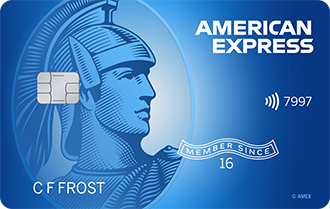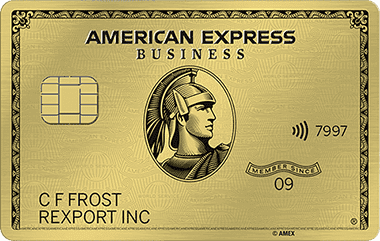- myFICO® Forums
- FICO Scoring and Other Credit Topics
- Personal Finance
- Please help in setting up retirement...
- Subscribe to RSS Feed
- Mark Topic as New
- Mark Topic as Read
- Float this Topic for Current User
- Bookmark
- Subscribe
- Mute
- Printer Friendly Page
Please help in setting up retirement...
Is your credit card giving you the perks you want?
Browse credit cards from a variety of issuers to see if there's a better card for you.
- « Previous
-
- 1
- 2
- Next »
- Mark as New
- Bookmark
- Subscribe
- Mute
- Subscribe to RSS Feed
- Permalink
- Report Inappropriate Content
Re: Please help in setting up retirement...
Thanks for the clarification, and sorry about jumping to conclusions.
I'm not too sure about the selection of funds in a solo 401k compared to a Roth IRA, but I would definitely put money into the Roth IRA first. 401ks often come with administrative fees on top of the fund's fees (for example my 401k charges 32$ annually which isn't much in the long run but deadly for low balances) so be careful. Also going Roth, versus pre-tax which most 401ks default as, when you are still young and likely to increase your income over time is the way to go.
Last INQ: 3/26/21
AAoA: 4y 7m
Lowest limit: Chase Freedom Visa - $13,000
Highest limit: Discover It - $56,500
Available credit: $200,600 (8 cards)
- Mark as New
- Bookmark
- Subscribe
- Mute
- Subscribe to RSS Feed
- Permalink
- Report Inappropriate Content
Re: Please help in setting up retirement...
No worries my friend. That's over and done with!!
What's the minimum amount that would be worth getting a 401K? $1,000 annually if I can squeeze it in after the max contribution of the IRA? Or would $1,000 be not worth it and better off applying to my student loans or something?
 Personal:
Personal:




Business:








- Mark as New
- Bookmark
- Subscribe
- Mute
- Subscribe to RSS Feed
- Permalink
- Report Inappropriate Content
Re: Please help in setting up retirement...
@Broke_Triathlete wrote:
Glider yes I'm single as of now. Probably going to throw my life away in a year and get hitched lol. I can contribute some now. How would that help me.
I am 100% completely new to this so you're dealing with a complete newbie. I've never looked into money market accounts of anything like that.
Thank you both for your posts!!
Time is your best friend in investing. The sooner your money can start growing, the more it can grow.
Sources are at the bottom, but I have no credentials. I recommend consulting someone who does.
Because your income is only $50k, and your employer offers no 401(k), you may want to consider opening up a Traditional IRA, first. This is because your standard deduction and your personal exemption (assuming you've donated no more than the standard deduction and noone else can claim you on their taxes) will bring your taxable income down by $10,150 (for 2014). Due to your (relatively) low income and lack of an employer plan, you may also deduct your full TIRA contribution from your taxable income. All of this together would make your taxable income $34,350. (This does not consider income from other sources (side-job, earned interest, etc). Make sure you account for those as well).
Now, you're currently in quite a low tax bracket to begin with, but this would drop you into an even lower one (the 15% bracket, up to $36,900 in 2014). The benefit to this is that opening a taxable account (which I recommend if you cannot open the One-Participant 401(k) linked below) and investing in mutual funds will result in Dividends and Capital Gains. If those dividends are qualified dividends and those capital gains are long-term, they are taxed federally at a lower rate than regular income. In the 15% tax bracket, these two types will be taxed at 0%. (Keep in mind, this does not account for state taxes.)
Now in the future, you may find that a TIRA no longer affords you enough deductions to be worth it. At that point you may then open a Roth IRA. You can even do this in the same year as the TIRA. Yes, you may contribute to a TIRA and a RIRA in the same tax year, however the $5,500 limit for your IRA is a combined limit for either/both IRA's. In your later years, you can also convert the TIRA gradually into a RIRA to maintain whatever tax bracket you find yourself in.
This is not a recommendation, just an idea. Again, I recommend talking to a financial planner, and/or tax advisor, first.
Tax year 2014 brackets: IRS Announces 2014 Tax Brackets, Standard Deduction Amounts And More - Forbes
Tax year 2015 brackets: IRS Announces 2015 Tax Brackets, Standard Deduction Amounts And More
IRA Deductions: http://www.irs.gov/Retirement-Plans/IRA-Deduction-Limits
Qualified Dividends: http://www.irs.gov/publications/p17/ch08.html#en_US_2013_publink1000171584
Capital Gains: http://www.irs.gov/publications/p17/ch14.html#en_US_2013_publink1000172312
One-Participant 401(k): http://www.irs.gov/Retirement-Plans/One-Participant-401%28k%29-Plans